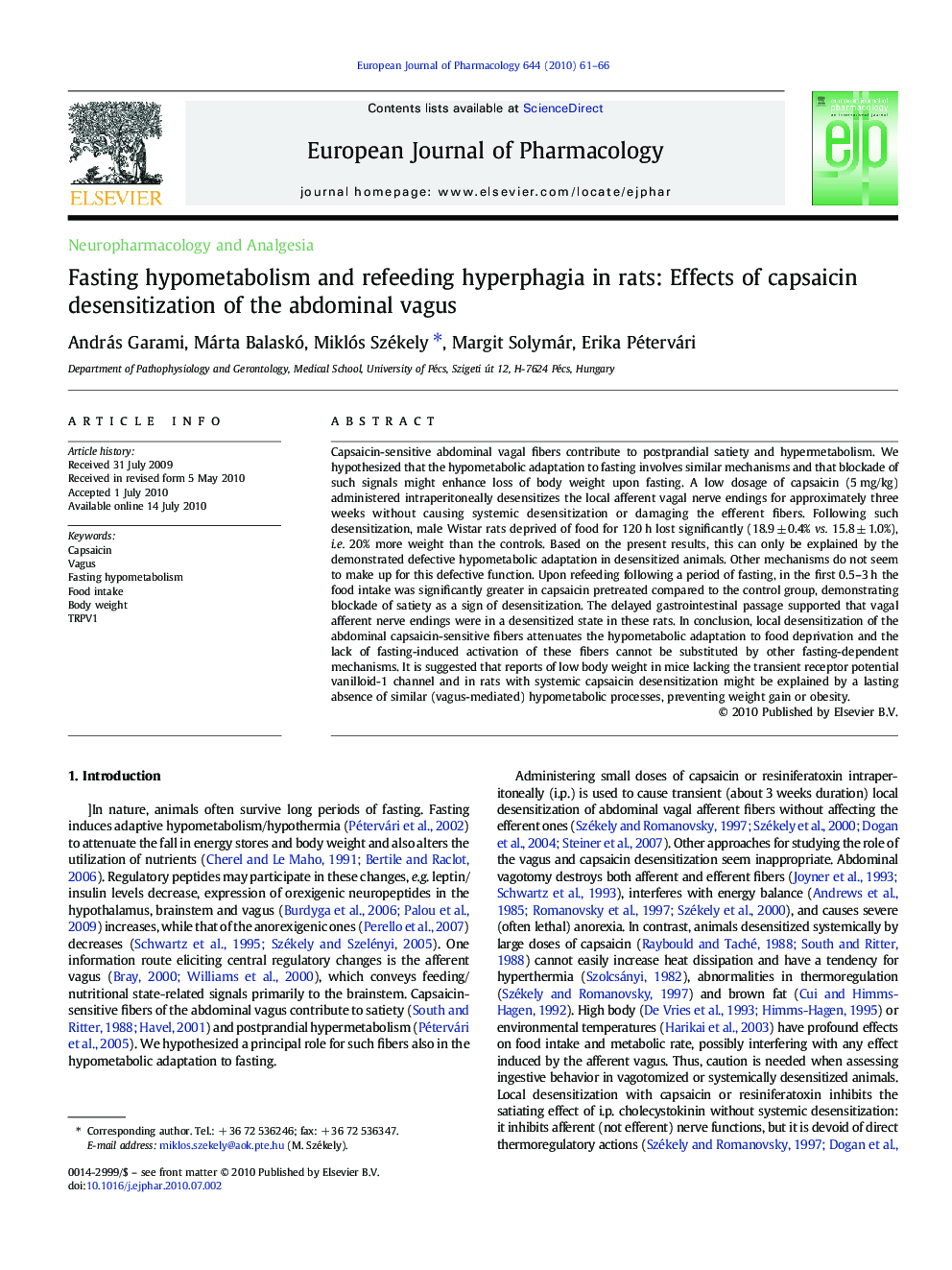| Article ID | Journal | Published Year | Pages | File Type |
|---|---|---|---|---|
| 5830523 | European Journal of Pharmacology | 2010 | 6 Pages |
Abstract
Capsaicin-sensitive abdominal vagal fibers contribute to postprandial satiety and hypermetabolism. We hypothesized that the hypometabolic adaptation to fasting involves similar mechanisms and that blockade of such signals might enhance loss of body weight upon fasting. A low dosage of capsaicin (5 mg/kg) administered intraperitoneally desensitizes the local afferent vagal nerve endings for approximately three weeks without causing systemic desensitization or damaging the efferent fibers. Following such desensitization, male Wistar rats deprived of food for 120 h lost significantly (18.9 ± 0.4% vs. 15.8 ± 1.0%), i.e. 20% more weight than the controls. Based on the present results, this can only be explained by the demonstrated defective hypometabolic adaptation in desensitized animals. Other mechanisms do not seem to make up for this defective function. Upon refeeding following a period of fasting, in the first 0.5-3 h the food intake was significantly greater in capsaicin pretreated compared to the control group, demonstrating blockade of satiety as a sign of desensitization. The delayed gastrointestinal passage supported that vagal afferent nerve endings were in a desensitized state in these rats. In conclusion, local desensitization of the abdominal capsaicin-sensitive fibers attenuates the hypometabolic adaptation to food deprivation and the lack of fasting-induced activation of these fibers cannot be substituted by other fasting-dependent mechanisms. It is suggested that reports of low body weight in mice lacking the transient receptor potential vanilloid-1 channel and in rats with systemic capsaicin desensitization might be explained by a lasting absence of similar (vagus-mediated) hypometabolic processes, preventing weight gain or obesity.
Related Topics
Life Sciences
Neuroscience
Cellular and Molecular Neuroscience
Authors
András Garami, Márta Balaskó, Miklós Székely, Margit Solymár, Erika Pétervári,
